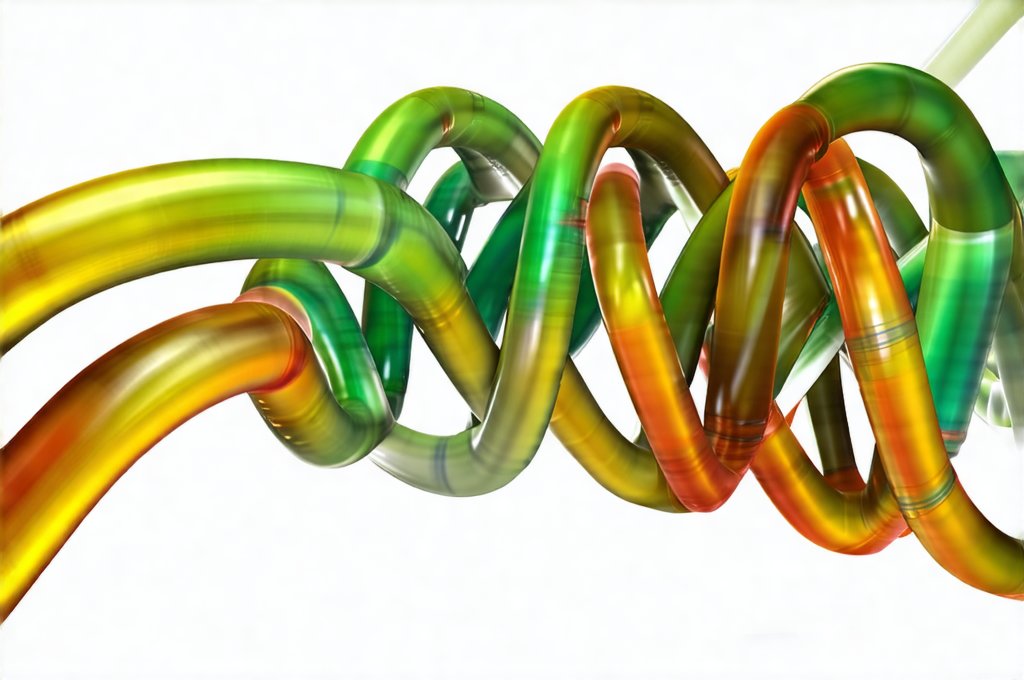Irritable Bowel Syndrome with constipation (IBS-C) is a chronic gastrointestinal disorder characterized by abdominal pain, bloating, and, as the name suggests, infrequent bowel movements. However, for many individuals living with IBS-C, the experience extends beyond simply struggling to go – it often involves an agonizing build-up of gas that feels trapped within their digestive system, leading to significant discomfort and a reduced quality of life. This isn’t merely ‘having gas’; it’s a persistent, debilitating sensation that can be profoundly different from typical flatulence. Understanding the intricate relationship between IBS-C and severe gas retention is crucial for those seeking relief and effective management strategies.
The mechanisms underlying this excessive gas build-up are complex and multifaceted, stemming from altered gut motility, visceral hypersensitivity, and potential dysbiosis within the intestinal microbiome. It’s important to recognize that experiencing significant gas isn’t necessarily a sign of something ‘wrong’ in isolation; it’s often an inherent component of digestion. However, in IBS-C, the normal processes of gas production and elimination are disrupted, leading to accumulation and subsequent symptoms. This article will delve into these disruptions, exploring how constipation specifically contributes to gas retention, the physiological effects of retained gas, and potential avenues for managing this challenging symptom. You might also find information on acid reflux helpful when considering digestive discomfort.
The Constipation Component & Gas Production
IBS-C fundamentally alters the speed at which food moves through the digestive tract. Reduced motility means waste products – including gases produced during fermentation in the colon – linger longer than they should. This prolonged contact time allows more gas to be created as bacteria continue to break down undigested carbohydrates, and it simultaneously hinders its ability to be expelled naturally. The slower transit also affects colonic contractions; healthy peristalsis helps push both stool and gas along, but weakened contractions in IBS-C contribute to stagnation.
The type of diet plays a substantial role too. Individuals with IBS-C are often more sensitive to FODMAPs (Fermentable Oligosaccharides, Disaccharides, Monosaccharides and Polyols) – short-chain carbohydrates that are poorly absorbed in the small intestine. When these reach the colon, they become readily fermented by bacteria, resulting in increased gas production. This isn’t unique to IBS-C; many people experience some degree of gas from FODMAPs. However, those with IBS-C have a lower threshold for discomfort and reduced ability to clear the resulting gas. – High-FODMAP foods include onions, garlic, apples, pears, wheat products, and certain dairy items. If you suspect your gut health is playing a role, explore gut microbiota.
Crucially, it’s not just how much gas is produced but also where it accumulates that matters. The colon’s natural curves and anatomical variations can create pockets where gas becomes trapped, exacerbating the sensation of bloating and pressure. This physical trapping, combined with the slower movement, creates a vicious cycle: more fermentation leads to more gas, which further slows down motility, leading to even greater retention. Those experiencing frequent discomfort may also want to investigate digestive inflammation.
Visceral Hypersensitivity & The Perception of Gas
Visceral hypersensitivity is a hallmark characteristic of IBS in general, but it plays an especially significant role in how individuals perceive and react to gas build-up within the digestive system. It refers to an increased sensitivity to normal gut sensations – essentially, the brain interprets even typical amounts of gas as intensely painful or uncomfortable. This isn’t simply ‘being more sensitive’; it’s a neurological phenomenon where pain thresholds are lowered.
This heightened awareness can create a feedback loop. The discomfort caused by retained gas leads to anxiety and stress, which in turn exacerbate IBS symptoms – including motility issues and visceral hypersensitivity. This creates a cycle of escalating distress. It’s also why the perception of gas often doesn’t correlate with the actual amount present. Someone may feel overwhelmingly bloated even with relatively little measurable gas in their system.
Furthermore, the brain-gut axis is bidirectional. Meaning, signals travel both from the gut to the brain and vice versa. Chronic stress or anxiety can directly impact gut function, slowing down motility and increasing sensitivity. This complex interplay highlights why managing IBS-C often requires a holistic approach that addresses not only physical symptoms but also mental well-being. Considering stomach sensitivity versus other conditions can aid in diagnosis and treatment.
Understanding the Physical Effects of Gas Retention
Gas retention isn’t merely uncomfortable; it can have significant physiological effects beyond bloating and abdominal pain. – One key effect is distension, or stretching of the intestinal walls due to gas pressure. This distension activates nerve endings in the gut, triggering pain signals that are sent to the brain. The level of discomfort is directly related to the degree of stretch and an individual’s visceral hypersensitivity.
The physical pressure from retained gas can also impact other organs. It may compress surrounding tissues, leading to feelings of fullness, nausea, or even back pain. In some cases, it can interfere with breathing by putting pressure on the diaphragm. – This is particularly concerning for individuals with pre-existing respiratory conditions. Chronic distension can also contribute to changes in gut permeability – often referred to as ‘leaky gut’ – potentially exacerbating inflammation and further disrupting digestive function.
It’s important to differentiate between normal gas production and excessive retention. A healthy digestive system will naturally eliminate gases through burping or flatulence, maintaining a comfortable level of pressure within the intestines. IBS-C disrupts this natural process, leading to a build-up that exceeds the gut’s capacity to manage it comfortably. Understanding acidic reflux can also help differentiate digestive issues.
Dietary Strategies for Managing Gas
Dietary modifications are often the first line of defense in managing gas retention associated with IBS-C. – A low-FODMAP diet is frequently recommended, but it should ideally be implemented under the guidance of a registered dietitian or healthcare professional to ensure nutritional adequacy and avoid unnecessary restrictions. This isn’t necessarily a permanent dietary change; it’s often used as an elimination diet to identify trigger foods.
Beyond FODMAPs, other dietary adjustments can be helpful: 1) Increasing soluble fiber intake (from sources like oats, chia seeds, and psyllium husk) can help regulate bowel movements and improve gut motility – but it’s crucial to introduce it gradually to avoid exacerbating bloating. 2) Staying adequately hydrated is essential for softening stool and facilitating gas passage. 3) Avoiding carbonated beverages and chewing gum can reduce the amount of air swallowed, minimizing initial gas production.
It’s also important to identify personal trigger foods that aren’t necessarily high in FODMAPs but still cause symptoms. Keeping a food diary can be incredibly helpful in pinpointing these sensitivities. Remember that dietary changes are highly individual; what works for one person may not work for another, so experimentation and professional guidance are key. The connection between gut microbiota and diet is also important to consider.
Exploring Non-Dietary Management Techniques
While diet is crucial, non-dietary approaches can also play a significant role in managing gas retention associated with IBS-C. – Regular physical activity promotes gut motility and helps relieve bloating. Even gentle exercise like walking or yoga can be beneficial. Mindfulness techniques, such as deep breathing exercises and meditation, can help manage stress and anxiety, which, as discussed earlier, exacerbate IBS symptoms.
Probiotics – live microorganisms that benefit gut health – may also offer some relief, though the specific strains and dosages required vary greatly and more research is needed. – They aim to restore a healthier balance of gut bacteria, potentially reducing gas production and improving digestion. Finally, certain over-the-counter medications, like simethicone (GasX), can help break up gas bubbles in the digestive tract, providing temporary symptom relief but not addressing the underlying cause.
It’s vital to remember that managing IBS-C is often a process of trial and error. What works best will vary depending on individual factors, and it may require combining multiple strategies. Collaboration with healthcare professionals – including doctors, dietitians, and therapists – is essential for developing a comprehensive and personalized management plan. It’s also important to seek medical attention if symptoms are severe or worsening, as they could indicate an underlying condition requiring specific treatment. Consider how sleep positioning may exacerbate digestive discomfort.


















